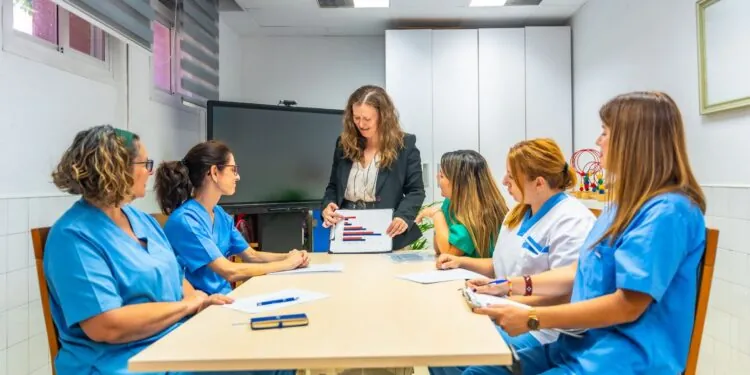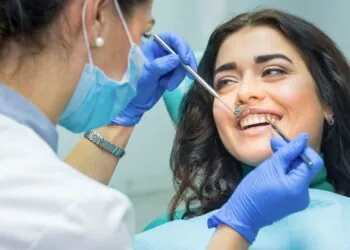Clinical practice experiences represent the transformative element that distinguishes Family Nurse Practitioner education from purely academic pursuits, providing the essential bridge between theoretical knowledge and real-world patient care delivery. These hands-on learning opportunities immerse students in authentic healthcare environments where they develop the clinical judgment, diagnostic reasoning, and patient interaction skills that define competent primary care practice. The clinical component serves as the proving ground where students integrate their advanced coursework into practical applications that will define their future professional success.
The required clinical hours for FNP programs typically range from 500 to 700 hours of supervised practice, though specific requirements vary based on state regulations and program design. This substantial time commitment reflects the complexity of primary care practice and the extensive skill development necessary for safe, autonomous practice. Unlike undergraduate clinical rotations that often focus on task completion and basic skill acquisition, FNP clinical experiences emphasize advanced competency development, independent decision-making, and comprehensive patient management approaches that prepare graduates for immediate practice responsibilities.
These clinical hours are strategically distributed across multiple settings and patient populations to ensure comprehensive exposure to the full spectrum of primary care practice. Students typically complete rotations in family medicine offices, community health centers, urgent care facilities, and specialty clinics that provide diverse learning opportunities. Early clinical experiences often focus on foundational skills including comprehensive health assessments, patient interviewing techniques, and basic clinical procedures, while advanced rotations emphasize independent practice, complex case management, and quality improvement initiatives.
The progression of clinical responsibilities follows a carefully planned trajectory that gradually increases student autonomy while maintaining appropriate supervision and support. Initial clinical encounters typically involve student observation of experienced practitioners, followed by supervised patient interactions where students perform assessments and present findings to preceptors for feedback and guidance. As competency develops, students assume increasing responsibility for patient care decisions, medication management, and treatment planning while maintaining collaborative relationships with supervising practitioners.
Finding qualified preceptors represents one of the most challenging aspects of FNP education, requiring students to demonstrate initiative, professionalism, and networking skills that will serve them throughout their careers. The preceptor identification process typically begins early in the program, often during the first semester, as students learn about supervision requirements and begin cultivating professional relationships with potential mentors. Many programs provide databases of previously utilized preceptors and networking opportunities that connect students with potential supervisors, but the ultimate responsibility for securing these relationships rests with individual students.
Effective preceptor recruitment requires students to articulate their learning objectives clearly, demonstrate their commitment to professional development, and present themselves as valuable contributors to clinical practice settings. Successful students often begin this process by identifying practitioners whose work aligns with their career interests and practice goals, then initiating professional conversations about potential preceptorship opportunities. This networking process helps students develop important professional relationships that often extend well beyond formal educational requirements.

The preceptor selection process must consider multiple factors including clinical expertise, teaching ability, availability for supervision, and willingness to provide constructive feedback about student performance. Effective preceptors possess current clinical knowledge, demonstrate evidence-based practice approaches, and maintain active involvement in continuing education activities that keep them current with evolving best practices. They should also exhibit strong communication skills, patience with learner questions, and genuine commitment to fostering professional development in future nurse practitioners.
Geographic considerations often complicate preceptor identification, particularly for students in rural areas or regions with limited numbers of practicing nurse practitioners or physicians willing to supervise students. Many fnp online programs work extensively with students to identify clinical opportunities that may require travel or temporary relocation to access appropriate learning experiences. This geographical flexibility requires careful planning and may influence program completion timelines, particularly for students balancing educational requirements with work and family responsibilities.
The real-world experience gained through clinical practice proves invaluable in developing the complex clinical reasoning skills that distinguish competent primary care providers from those who struggle in autonomous practice roles. Clinical encounters expose students to the unpredictable nature of primary care practice, where textbook presentations are rare and patients often present with multiple, interconnected health concerns that require sophisticated diagnostic reasoning and treatment prioritization. These authentic learning experiences teach students to manage diagnostic uncertainty, make decisions with incomplete information, and adapt treatment plans based on patient responses and changing circumstances.
Clinical practice experiences also develop essential patient communication skills that cannot be adequately taught through classroom instruction alone. Students learn to establish therapeutic relationships with patients from diverse backgrounds, adapt their communication styles to different age groups and health literacy levels, and navigate difficult conversations about sensitive topics including mental health, substance abuse, and end-of-life care. These interpersonal skills prove critical for primary care success, where provider-patient relationships often extend over many years and encompass comprehensive health management approaches.
The exposure to diverse practice settings during clinical rotations helps students understand the various contexts in which nurse practitioners work while identifying their preferred practice environments. Students may discover interests in rural health, urban community health, occupational health, or specialized populations that influence their career trajectories. This exposure proves particularly valuable for new graduates who may not have previously considered the full range of opportunities available to family nurse practitioners.
Clinical experiences also provide essential learning about healthcare systems, insurance requirements, documentation standards, and regulatory compliance issues that affect daily practice. Students learn to navigate electronic health record systems, understand billing and coding requirements, and comply with quality reporting measures that influence contemporary primary care delivery. This practical knowledge proves essential for successful transition to independent practice, where new graduates must quickly adapt to complex administrative requirements while maintaining focus on quality patient care.
The mentorship relationships developed during clinical rotations often continue beyond graduation, providing ongoing support and guidance as new nurse practitioners establish their careers. Experienced preceptors frequently serve as references for job applications, provide career counseling, and offer consultation about challenging clinical cases. These professional relationships contribute to the professional development and career satisfaction of new FNP graduates while strengthening the broader nurse practitioner community through mentorship and collaboration.














Discussion about this post